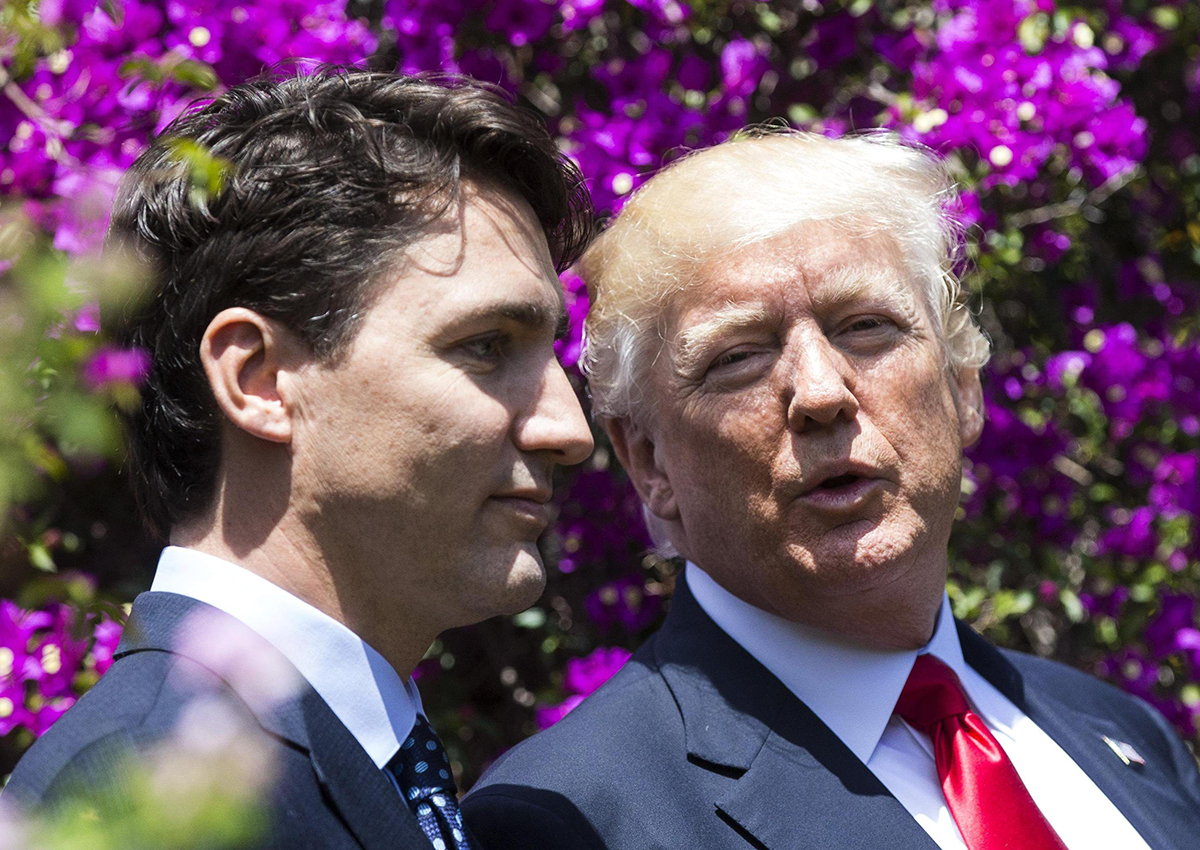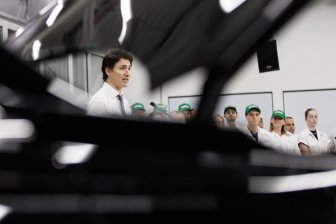It seemed sadly inevitable that the presidency of Donald Trump would spark some sort of a trade war. Perhaps the only surprise is that it has taken this long.

There’s still a chance to pull back from the brink, but given the chaos which has enveloped the White House — and the president’s own volatility — it’s hard to be optimistic that cooler heads will prevail. Despite indications that no such announcement was forthcoming, Trump dropped the bombshell Thursday: he plans on imposing a 25 per cent tariff on steel and a 10 per cent tariff on aluminum.
Friday morning, Trump took to Twitter to make it clear that he welcomed a trade war:
Interestingly, as U.S. trade expert Scott Lincicome has pointed out, the U.S. steel industry is doing rather well. The industry’s overall production was up five per cent last year and still commands nearly three-quarters of the U.S. market. Such facts don’t seem to matter as much as they should.
Already, countries are bracing for these new tariffs, and preparing counter measures of their own. This escalation is truly worrisome — there are no winners in trade wars.

WATCH ABOVE: Trudeau to let Trump know proposed steel tariffs ‘unacceptable’
But this is an issue that goes beyond the ability of companies to access other markets. Trade barriers have a direct impact on consumers, and politicians are far more likely to listen to angry taxpayers in their own countries than angry foreign governments.
And make no mistake: tariffs are taxes.
Fortunately, there are those who understand this, and their criticisms might hit Trump where it hurts. Republican Senator Ben Sasse, for example, accused the president of “proposing a massive tax increase on American families” and that “you’d expect a policy this bad from a leftist administration, not a supposedly Republican one.” Ouch.
It’s true, though. Within hours of Trump’s announcement that was becoming clear. Toyota, for example, is warning that the tariffs will substantially raise their production costs, and therefore make vehicles more expensive. The beverage industry is warning of similar impacts, as the tariffs will raise the cost of aluminum cans.
Brewing giant MillerCoors warned of higher beer costs and job losses in the beer industry:
If Americans start to see this not as Trump defending U.S. interests, but rather imposing a car tax, a beer tax, and all sorts of other taxes, the reaction will be very different. Having just brought in tax cuts, it seems unwise for the president to turn around and wipe out those gains for taxpayers.
There’s already evidence of this happening because of Trump’s previous tariff announcement. Lumber prices in the U.S. are at record highs, which is adding to the costs of new homes. Those new U.S. tariffs on Canadian lumber are a big reason why.
- Canadian man dies during Texas Ironman event. His widow wants answers as to why
- On the ‘frontline’: Toronto-area residents hiring security firms to fight auto theft
- Honda’s $15B Ontario EV plant marks ‘historic day,’ Trudeau says
- Canadians more likely to eat food past best-before date. What are the risks?
And so while Canada is understandably nervous about all of this, we’re no saints on this issue, either. There are all kinds of tariffs we impose on all kinds of different products coming into Canada, which bring in about $3.6 billion in revenue for the federal government. But it’s Canadians who bear those costs.
Canada’s system of supply management imposes massive tariffs (299 per cent on butter, for example) on the import of dairy and poultry products, all in the name of “protecting” Canada’s industry. The end result, though, is what’s essentially a dairy and poultry tax — one that costs Canadian families an average of over $400 a year.
Other examples abound. There was the recent drywall tariff Canada imposed, that came at the worst possible time for rebuilding efforts in Fort McMurray. There was the iPod tax that was inadvertently added into the federal budget a few years ago.
On and on it goes.
When it comes to tariffs and trade wars, we seem intent on learning lessons the hard way.
Rob Breakenridge is host of “Afternoons with Rob Breakenridge” on Global News Radio 770 Calgary and a commentator for Global News.




Comments